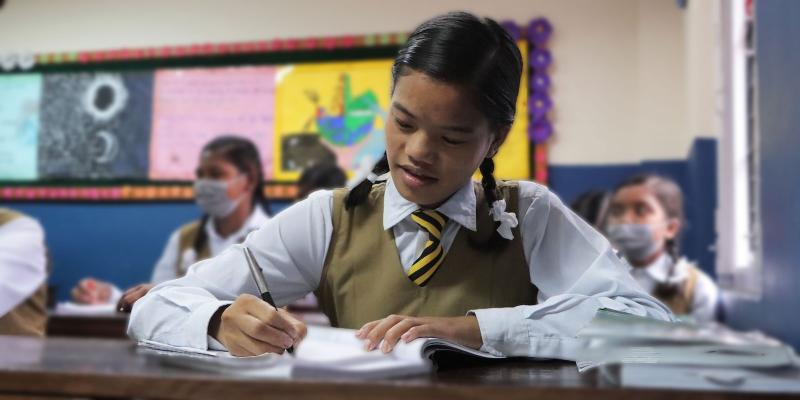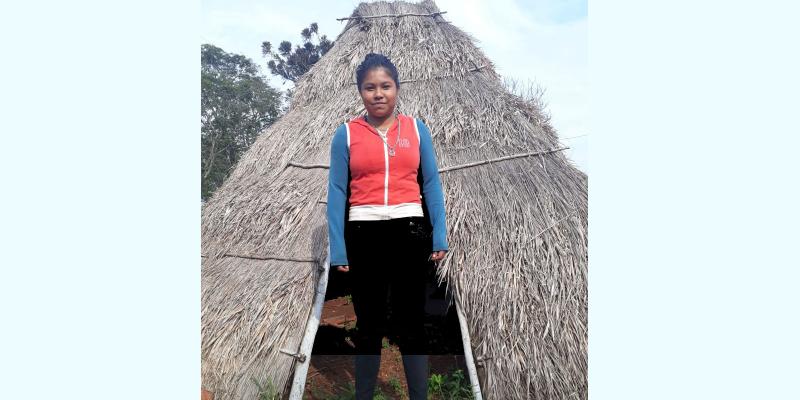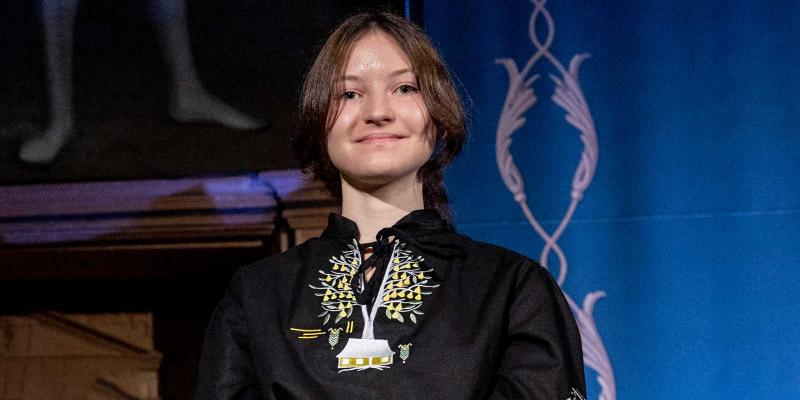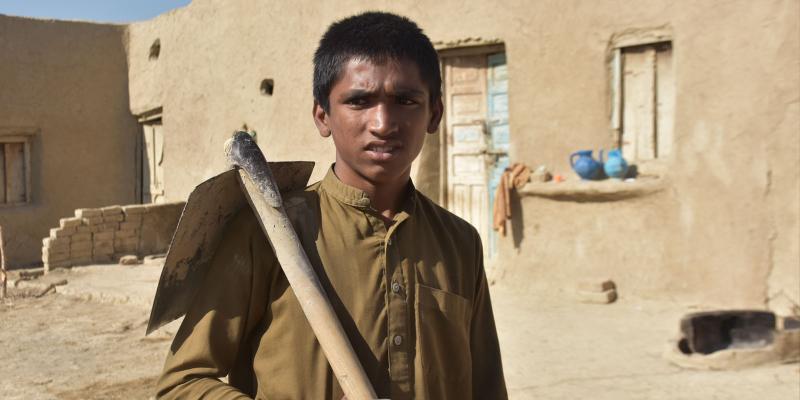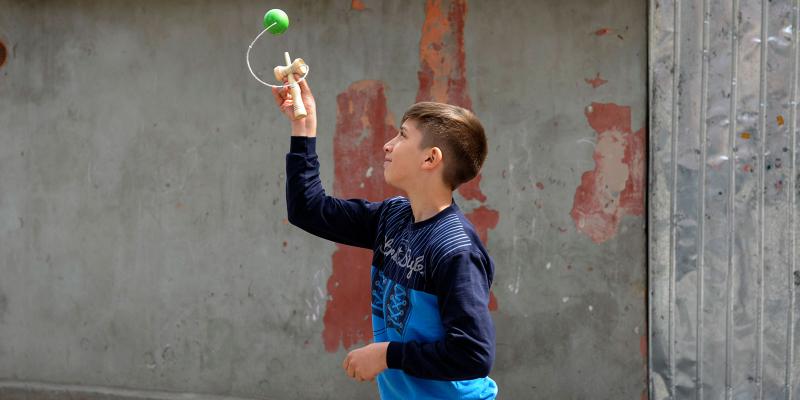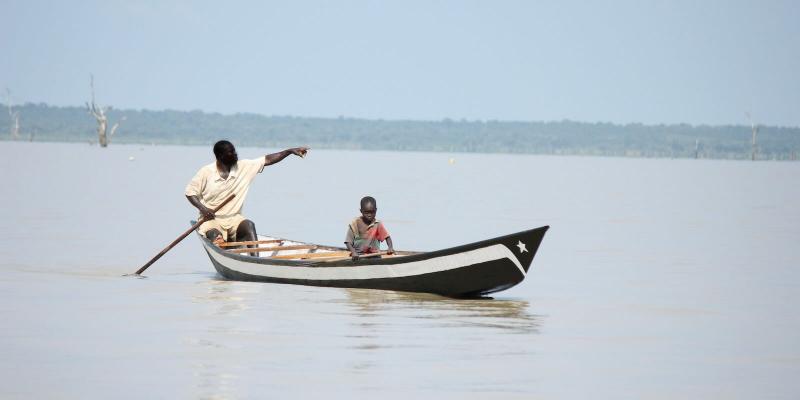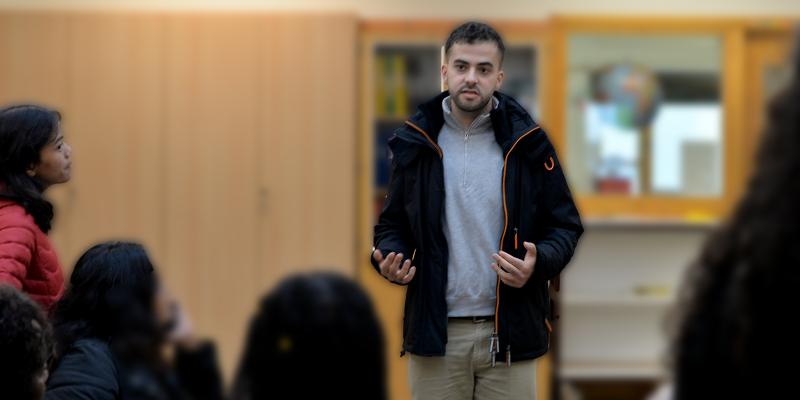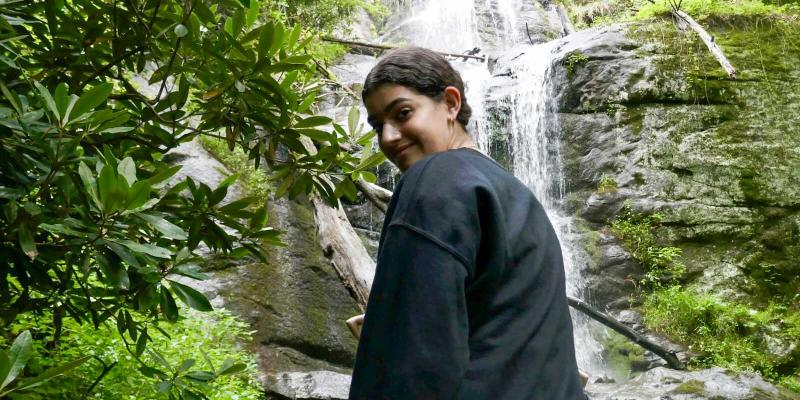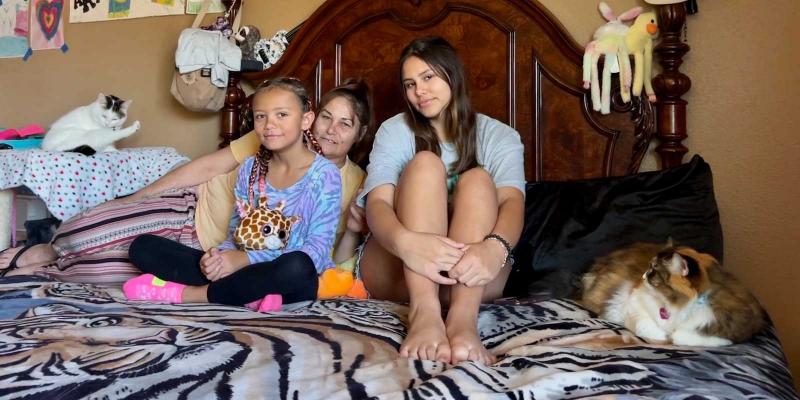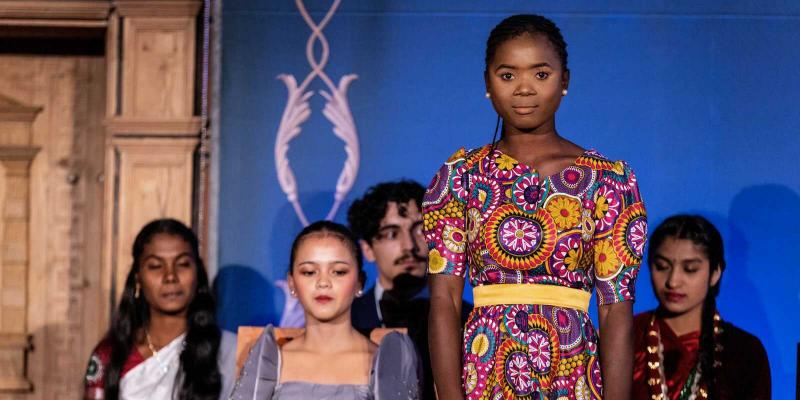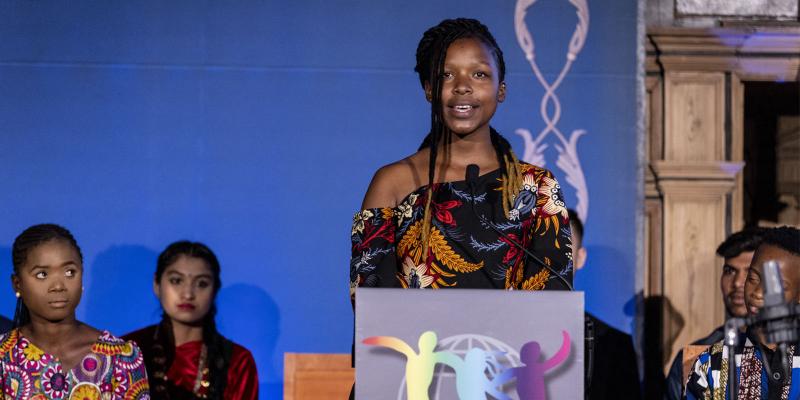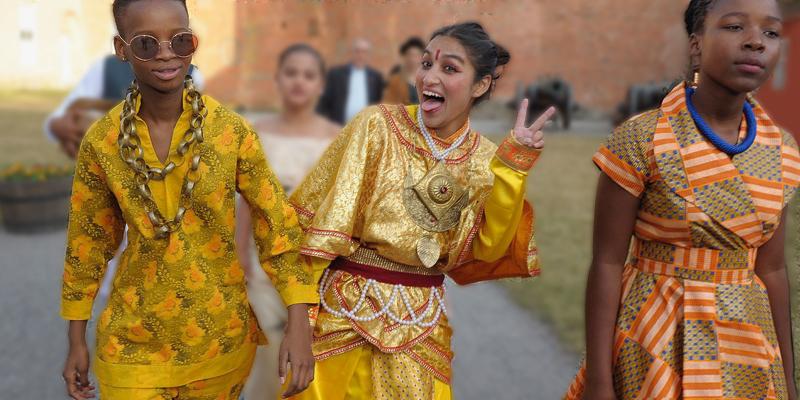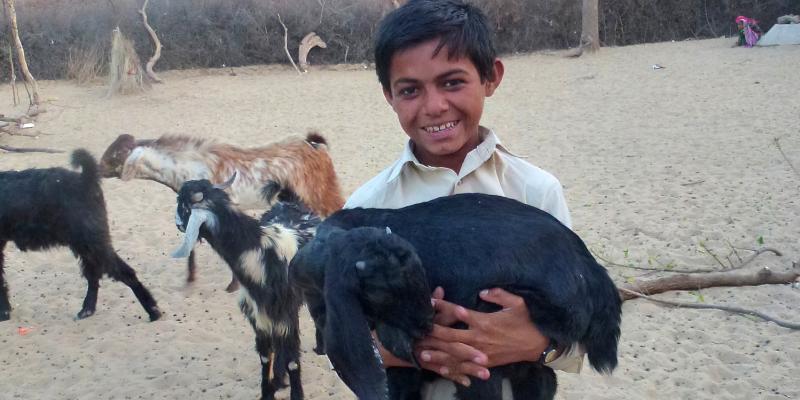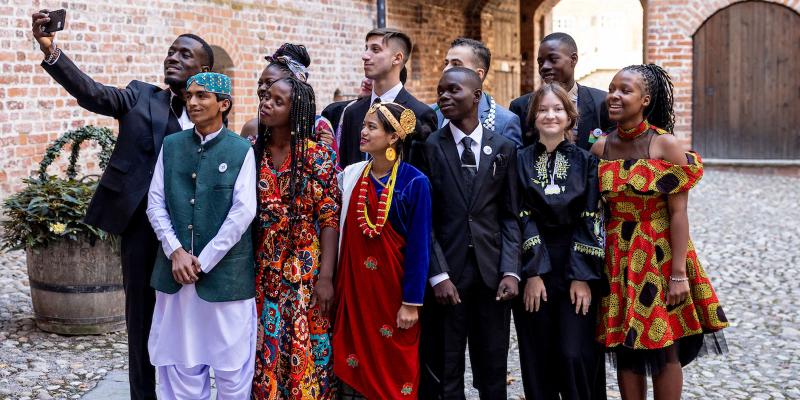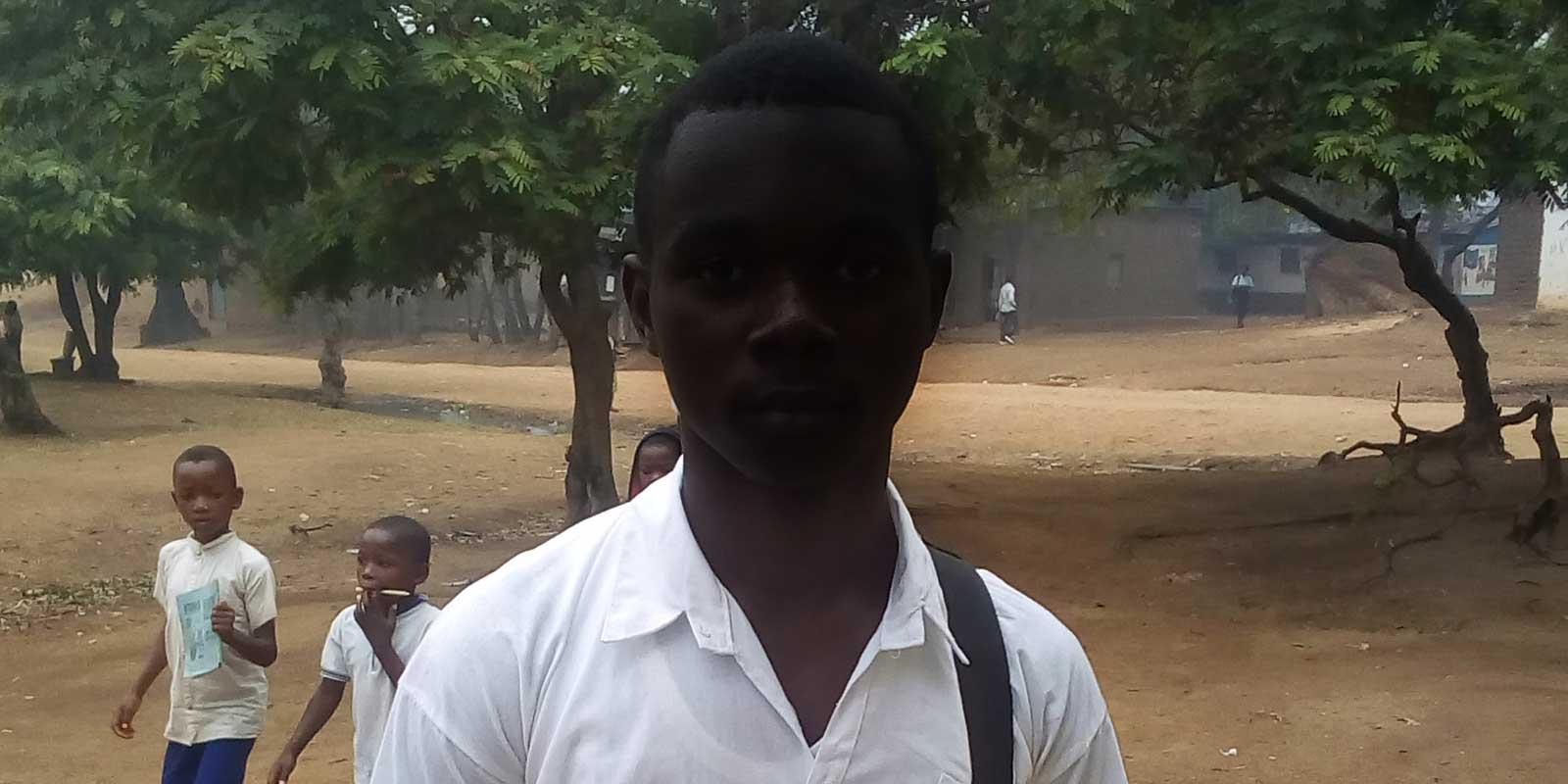
Espoir cried during the whole trek through the forest. His shirt was wet through from the tears, as though it had been raining. If he stopped, the soldier beat him with a stick. All the time, Espoir was thinking of his mum and dad, and that he might never see them again...
Espoir, whose name means ‘hope’, comes from South Kivu province in the Democratic Republic of Congo. This is the story of three years of his life:
“I was 10 years old, almost 11. Every day I got up early to work in the morning, mostly carrying rubbish to the tip and crops from the field. I’d usually get 2,000 CDF (USD 1), or a kilo of cassava for half a day’s work. In the afternoons I went to school. After school we used to play football with a ball made of plastic. Every Wednesday and Saturday, I went to choir practice at church. In the evening I did my homework by the light of the fire.
“I’d heard about boys from the villages nearby being abducted and forced to be child soldiers. I was always worried that the same thing might happen to me one day. But my family is very poor, so there wasn’t much we could do about it. We couldn’t move to the city, which would be safer.”
Worst fears realised
“I got up early as usual, ate a cold sweet potato, drank a glass of water and began the walk to school with two friends. It takes an hour to get to school and we usually spent the time talking about funny things that had happened.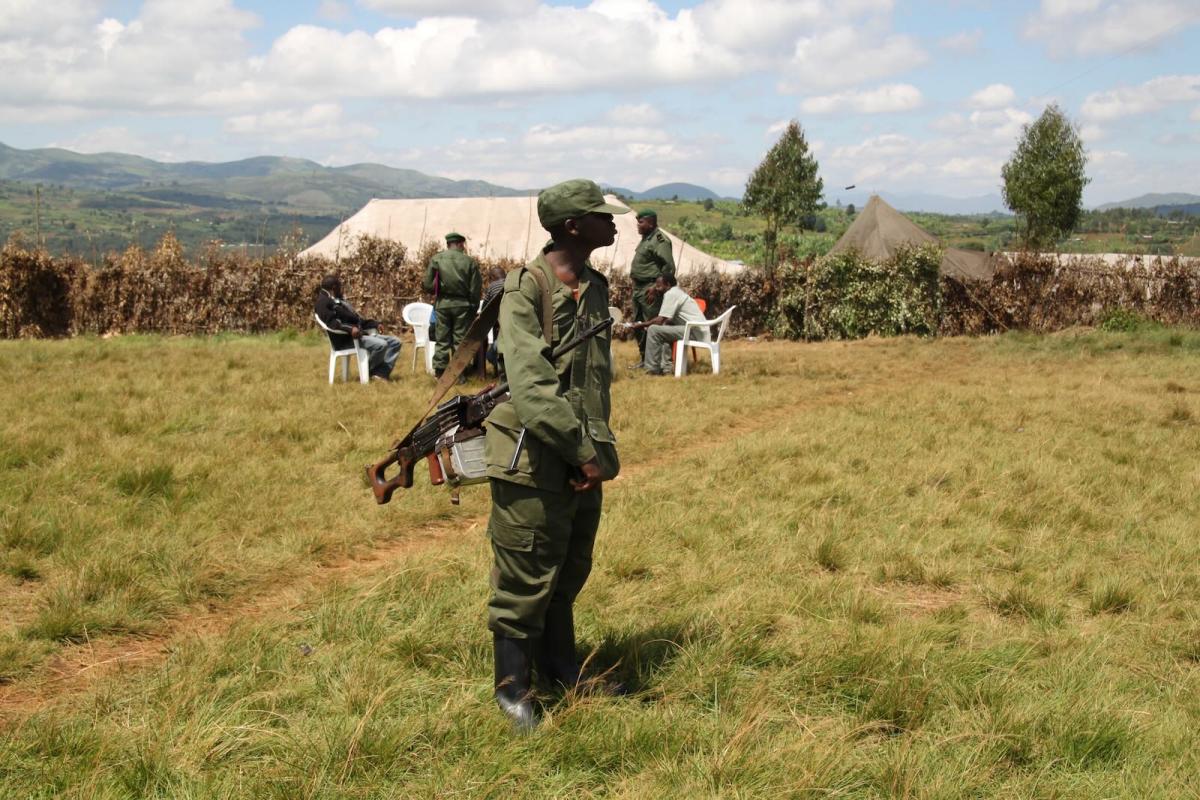
“Suddenly a group of armed men stepped out from some bushes and stood in front of us on the path. I was so scared that I just froze. I immediately thought I would die, but thanks to God I wasn’t killed. We cried and shook with fear.
‘Please, let us go to our families,’ we begged.
‘Why should we do that?’ they said, and they beat us with sticks while dragging us with them into the forest.
‘Don’t try and run! And keep moving!’ ordered one of them.
“We carried our school bags and heavy sacks of food that they had stolen from somewhere”.
Raw cassava for food
“The forest frightened me. I was afraid the wild animals would kill us and eat us. At first we tried to escape. Then they put us right at the front and one of them said in a menacing voice:‘Fools, just you try and run. Then we’ll help you meet your dead ancestors. And we’ll show no mercy.’
“We walked day and night, ate raw cassava from the sacks we were forced to carry and drank water from springs. When we were too tired and lagged behind, they beat us with their sticks to get us to speed up.
“I thought I’d never see mum or dad or my brothers and sisters again. I kept thinking I would be killed by the soldiers, who beat me as if I were a snake.
“I cried the whole time. My shirt was wet through from the tears, as though it had been raining.”
Tried to help children
“First we had to go through an initiation ceremony with drugs and jujus, which are objects we had to carry with us in combat to protect us from the bullets. Then we had to learn to shoot. It took me three months to learn to use a weapon. First the AK-47 assault rifle and then the PKM machine gun.“Then I fought against other armed groups and against our country’s army.
“One evening we drank kanyanga that made me drunk. I shot a couple of rounds into the air, and the troop leader demanded that I pay 40,000 CDF (USD 20) for the bullets, but I couldn’t pay. So he ordered my friends to give me 15 lashes of the whip. I escaped that same night and headed back to my village. But I came across another armed group and I was tortured until I agreed to join them. We stole from fields and homes and robbed car drivers in the evenings and at night.
“I was never involved in abducting children. When my friends arrived with new children, I tried to teach them how to escape and avoid my fate.”
Free at last
“I wanted to visit my family, and one night I ran away. On the way I was arrested by a government soldier, who took me to a prison. I was put in a tiny cell with some men who assaulted me. They took my food, sold it and used the money to buy cigarettes. It was so cramped that at night we had to take it in turns to stand up and sleep on the floor.“The organization BVES visited my cell. When they saw that I was a child, they got the prison manager to hand me over to them. I was taken to BVES’ centre for rescued child soldiers, and I had time to recover there until I felt ready to go back home.”
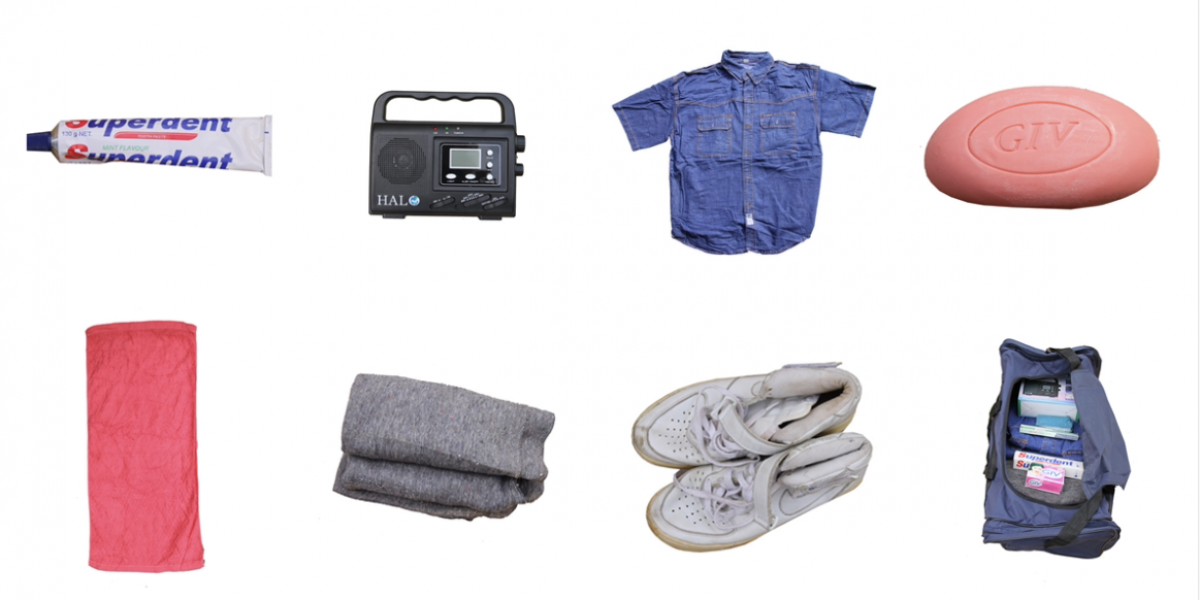
Home!
“Finally the day I’d been longing for since I was abducted arrived; the day I would be reunited with my family. We were all overjoyed and all of us cried. After a few days, the fear began to creep up on me. Since then I’ve been constantly afraid of being abducted again if the armed groups find out I’m back in the village. I’m also afraid of being arrested again by the government soldiers.“Going back to school means a great deal to me. I feel it’s helping me build a future for me and my family. I want to be a teacher. But I also want to fight for children’s rights, and to prevent children being abducted by armed groups and separated from their families.”
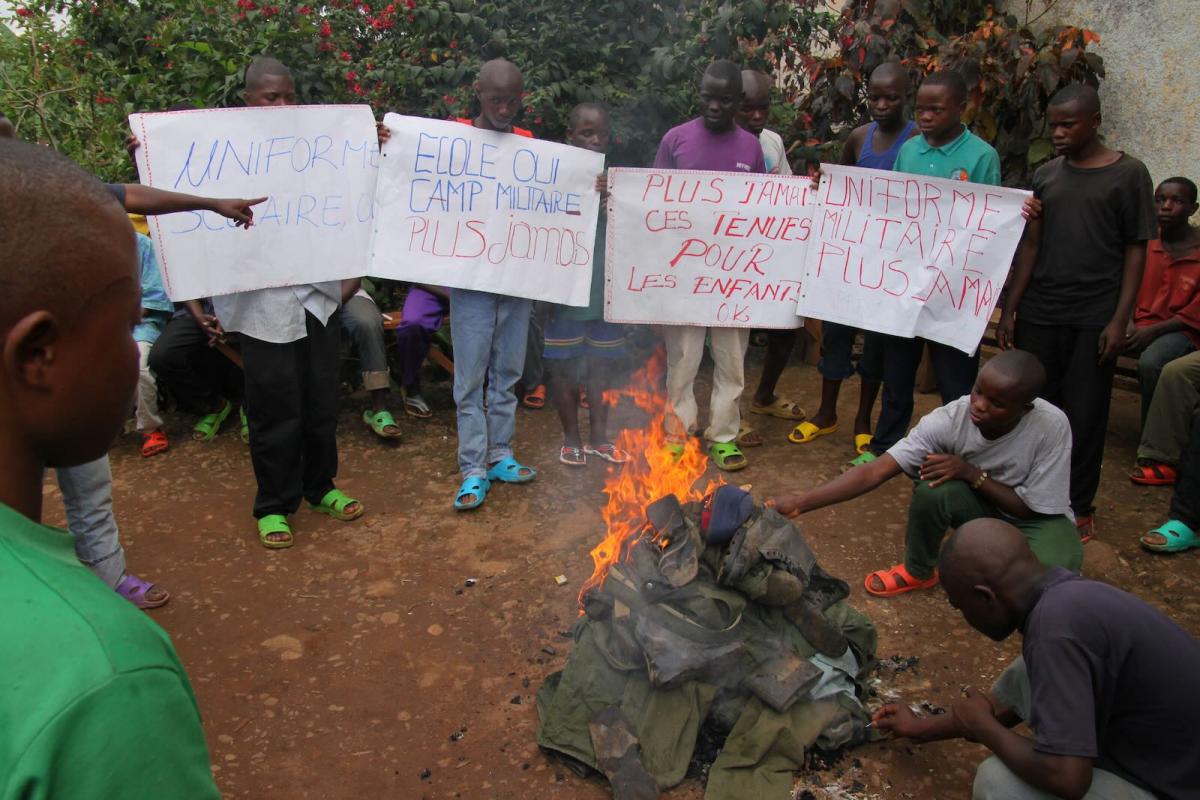
Espoir represents children forced to become soldiers and children
living in armed conflict situations.
My family.
Playing football and
singing in choir.
Being abducted and tortured.
Going to school.
French,
history, social and moral studies.
French,
A teacher and rescue children.
Facts about the war
The war in DR Congo, which has been going on since 1998, is one of the most brutal wars in the history of the world. More than 6 million people have died in the fighting, or from hunger and diseases as a result of the war. At its peak there were over 30,000 child soldiers in the country; now there are around 15,000. Over 7 million children do not go to school.Related stories
Långgatan 13, 647 30, Mariefred, Sweden
Phone: +46-159-129 00 • info@worldschildrensprize.org
© 2020 World’s Children’s Prize Foundation. All rights reserved. WORLD'S CHILDREN'S PRIZE®, the Foundation's logo, WORLD'S CHILDREN'S PRIZE FOR THE RIGHTS OF THE CHILD®, WORLD'S CHILDREN'S PARLIAMENT®, WORLD'S CHILDREN'S OMBUDSMAN®, WORLD'S CHILDREN'S PRESS CONFERENCE® and YOU ME EQUAL RIGHTS are service marks of the Foundation.



